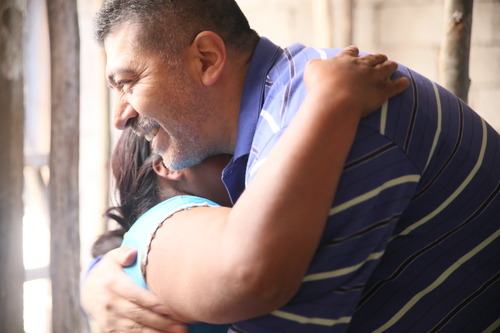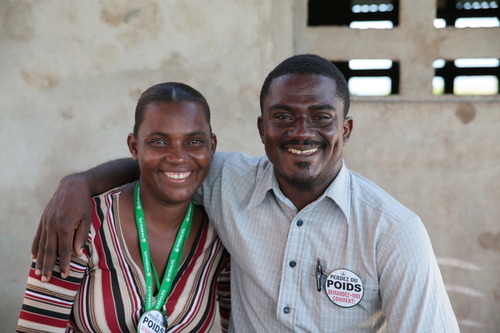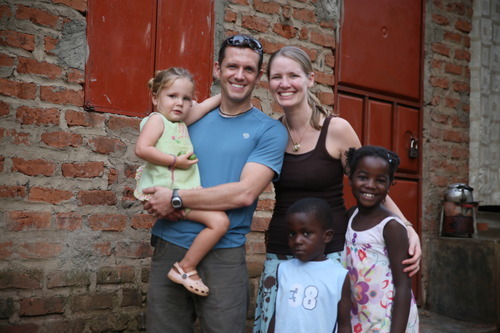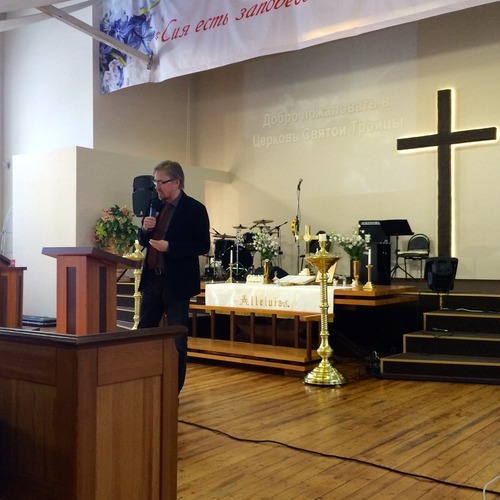The Practice of Presence
Several years ago, I interviewed for a youth pastor position in northern Virginia. One of the questions was, “How would you describe your ministry to students?” While the committee expected to hear about creative programs, wild games and big mission trips, I instead told them my greatest love in youth ministry was practicing the ministry of presence. In my experience, youth are in such a state of transition and in constant competition for resources and attention that they crave consistency. Having a constant, reliable adult interested in their lives, present at their sporting events or theatre productions, sitting with them and their parents to have crucial conversations, is part of this ministry of presence. Simply put, it is being there for them and exemplifying the love and presence God has for each of us. It is answering the phone at three o’clock in the morning to pick them up from an out of control party; it is showing up to hear the band concert for three nights in a row; it is coming for parent/teacher night when their parents are out of town or simply do not care. Practicing the ministry of presence physically connects hearts spiritually. What I have found when completely investing into the lives of students (and adults) is the overwhelming interest they reciprocate. Though it may not be immediate, at some point, they begin showing up at Bible studies and prayer breakfasts. Looking for volunteers for a service project? They are first in line. When they feel loved, they want to share and show the love they have been shown.
From this personal reflection, it should come as no surprise that I zeroed in on a specific set of chapters in James Davison Hunter’s book, To Change the World: The Irony, Tragedy & Possibility of Christianity in the Late Modern World. His essays on the theology of faithful presence spoke to my heart and my love of ministry. This one quote completely describes the ministry of presence and its importance:
“For the Christian, if there is a possibility for human flourishing in a world such as ours, it begins when God’s word of love becomes flesh in us, is embodied in us, is enacted through us and in doing so, a trust is forged between the word spoken and the reality to which it speaks; to the words we speak and the realities to which we, the church point.”[1]
As Hunter points out, in an age where we are more and more virtual and less and less physically present, ministry and leadership changes. Is it important to continually serve youth (and others) by practicing the ministry of physical presence in their lives?[2] Or is it more important to be “present” on their Facebook page with comments and in their phones with text messages? My gut response is yes to both. As I know Stefania would tell you, ministry, especially youth ministry, is not for the lazy or those who like to cut corners. It is not a 9-5, Monday through Friday desk job. Ministry, whether it be missions, leadership, pastoral, or counseling, requires standing on the front lines, being present, and knowing your fellow believers, or those in your communities, or world. The intentionality of being present, and then exemplifying presence in worship, through prayer, and with love, directly expresses the compassion and commitment that Christ unconditionally and freely gave to us. Indeed, it comes back to the relationship God first created with us, illustrated to us through His Son, and requires of us in acting justly and walking humbly as we love Him and love others.
Hunter offers four attributes to describe God’s faithful commitment and presence:
1) He pursues us.[3]
2) He identifies with us.[4]
3) He offers us a life with Him and full of Him, marked with goodness, peace, joy, and more.[5]
4) He offers us His sacrificial love.[6]
This describes how God’s love for us is active, committed and intentional. He offers a blueprint for leadership amongst pastors for their flocks. Living in God’s example, in Hunter’s words, we are called to “a theology of faithful practice is a theology of engagement in and with the world around us.”[7] And this is the divine ordination of the ministry of presence.
Last week, I spoke about optimism, and how there are great spiritual leaders and passionate Christians making a difference in their communities, one life at a time. When I think to those leaders – in Russia, in Uganda, in Ecuador, in Haiti – they are embodying the ministry of presence:
Their communities know them. Dr. Roberto Contreras and Pastor Raphael Ordoñez in Quito walk into learning centesr and are greeted happily with hugs of adoration and handshakes of respect.

Their congregations adore them. Pastor Mongerard Duruseul in Haiti is called “Papi” by many of the children, instead of Pastor.

In Uganda, the children running down the street call their names. As we walked through Masese Slum, children screamed “Jeremiah”, “Jeremiah”, “Jeremiah”, jumping for a hug from missionary Jeremy Boone.

The local governments trust them to care for their communities. Pastor Andre Ivanoff, in Ekaterinburg, has earned the respect of the secret police, who now drop off abandoned children at his home instead of taking them to the institutions.

The central theme throughout the missionaries I have been fortunate enough to observe is their gift for practicing the love of God through the ministry of presence. The above examples do not just happen. They are not immediate. It is the result of time, presence, and love. These leaders value relationships, and they cultivate the spirit of fellowship and community. They emulate God in pursuing the people around them, identifying with their needs and providing them support and community. They offer them a life of peace that can only be found in the loving arms of God. It is because of these leaders with beautiful strong hearts that I know, I believe, God is alive and active in the hearts of believers and unbelievers alike. And these leaders have what it takes to change the world.
Leave a Reply
You must be logged in to post a comment.